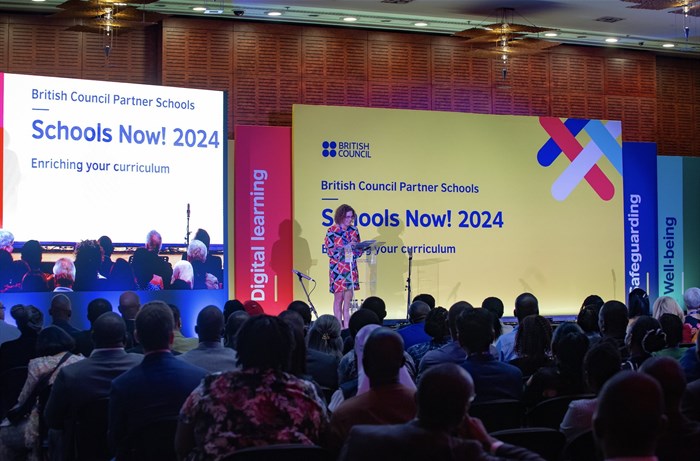The inaugural Schools Now! Conference in Sub-Saharan Africa delves into the contemporary challenges and opportunities confronting educators in the region.

Image supplied
While this offers opportunity, challenges also arise, such as the digital divide – a pressing issue in Africa – and the need for more comprehensive teacher training. Collaboration between stakeholders is essential to ensure equitable access to education.
With a view to enabling enhanced learning outcomes in schools, British Council’s Schools Now! 2024 was held over three days in Cape Town from 27-29 February 2024.
The conference was attended by over 1,000 school leaders both onsite and virtually and served as a platform for fostering collaboration and sharing best practices and insights in international education.
The themes included digital learning, leadership, well-being, and safeguarding, adding to a rich internationalised and contextualised curriculum. Through a series of engaging keynote sessions, immersive workshops, and panel discussions, delegates explored innovative teaching approaches, curriculum enrichment strategies, and the integration of technology in education.
Martin Lowder, head of global exams services, the British Council, shared, ‘The spirit of Schools Now! is to establish global connections within the educational community, exploring insights and innovations in international education. By addressing emerging themes, we aim to empower educators to navigate the complexities of the shifting education landscape and drive positive outcomes for students.’
British Council South Africa country director, George Barrett, said: ‘British Council Partner Schools programme supports over 40 Partner Schools in South Africa and 785 in Sub Saharan Africa to deliver UK International School Qualifications on behalf of UK awarding bodies. Our educational support enables schools to enhance the learning experience for students, improving educational outcomes and giving young people in the region access to international opportunities.’
The opening keynote session by Victoria Pendry, CEO of the Curriculum Foundation, aimed at empowering schools to develop, monitor, and evaluate an enriched curriculum. She highlighted that, ‘In a rapidly changing world, if learners are to develop resilience, creativity and the essential skills of collaboration, the curriculum must be ambitious and enriched with local and global narratives that excite imaginations and inspire curiosity.’
Her presentation explored the interconnected nature of digital learning, leadership, well-being, and safeguarding as a foundation for quality and equitable education. She summarised how ‘a curriculum that is rich in respect for the past, eager to consider preferred futures and committed to exploring different perspectives, will drive positive outcomes beyond the classroom’.
Other distinguished speakers included Dr Funke Baffour-Awuah, head of the Well-Being Division and Child Protection Lead, Al Rayan International School, Ghana, Kathleen O’Hare, British Council Education Consultant, Pamela O`Brien, deputy head and Jo Parkes, deputy head academic from British Council School in Madrid, and adding to a rich and diverse perspective.
Tatiana Popa, deputy academic director, Heritage International School, Moldova, an ISC International Education Influencer of 2023, delivered a session for virtual delegates, on ‘Digital learning’, focussing on the use of AI in schools and how this will impact all areas of work, educational tools, teaching practice and much more.
An expert panel on ‘AI in Education’ comprising of Kudzayi Tarisayi, senior lecturer, Stellenbosch University, Cape Town, Reham Ali, director of Middle and High School Education, Nermine Ismail International Schools, Egypt and Jo Parkes discussed valuable tips into how schools can ensure students are prepared for future needs dictated through the use of AI. It was eye-opening to see nearly 90% of conference delegates voice AI as a friend, not foe, signalling widespread optimism towards AI’s potential benefits.
Dr Funke’s keynote addressed how to ‘Develop a Well-being Framework for a Thriving School Community through the lens of ‘A Curriculum-Centred Approach.’ She stressed how ‘Integrating wellbeing into the curriculum promotes a thriving school community: By intentionally incorporating wellbeing into the curriculum, schools can create a holistic learning environment that supports the mental, emotional, and physical health of students.’































